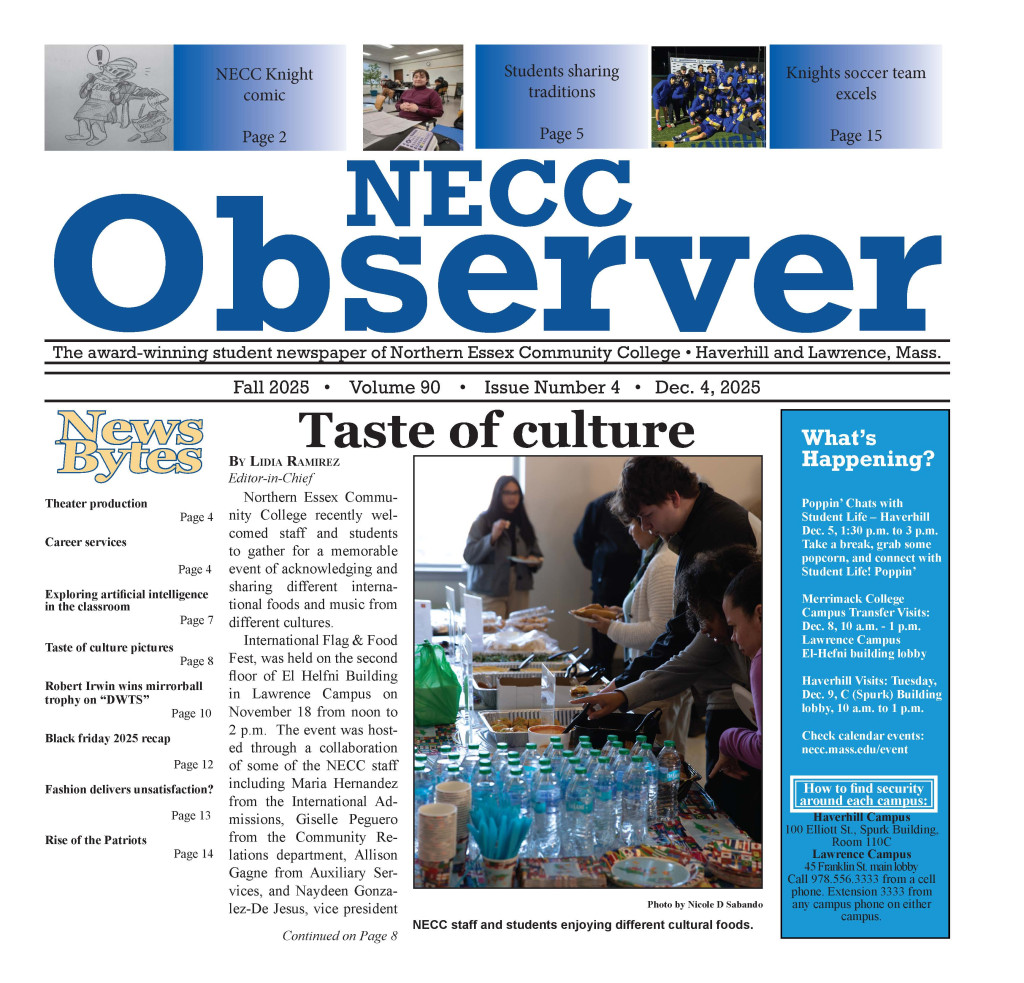With half of the fall semester gone and winter fast approaching, NECC students may find the “winter blues” hard to avoid.
According to the American Psychological Association, Seasonal Affective Disorder is estimated to affect ten million Americans and is more common in women. SAD usually starts to set in around daylight savings time and continues until spring. The decrease in daylight can cause a wide range of symptoms that lead to a depressed mood.
Also, spending more time indoors can bring on feelings of boredom, agitation in relationships and feelings of hopelessness. Unfortunately, in severe cases of SAD, the affected individual can have thoughts of suicide.
Jetting off to a tropical locale would be a surefire way to ease symptoms of SAD. Of course, with the cost of living and tuition on a constant rise, college students have to rely on more practical regimens for keeping their spirits up.
“Tanning salon, all year for some vitamin D,” said NECC student Rhiannon Hardy. “I look better and it increases my mood.”
Psychology Today suggests that spending time with friends and family is crucial to one’s emotional well-being. Even snuggling with your dog or cat can help ease depression.
“I like dressing my cats in costumes and posting the pics on Facebook,” said Melissa Dow of Amesbury.
Although these methods have been proven to help in low to moderate cases of SAD. However, severe symptoms may be harder to treat without the use of therapy or medications.
Students who wish to seek professional help with SAD are encouraged to visit NECC’s Counseling Services office for assistance: on the Haverhill Campus, Room D117 in the Sports and Fitness Center; on the Lawrence Campus, Room L115 in the John R. Dimitry Building.

